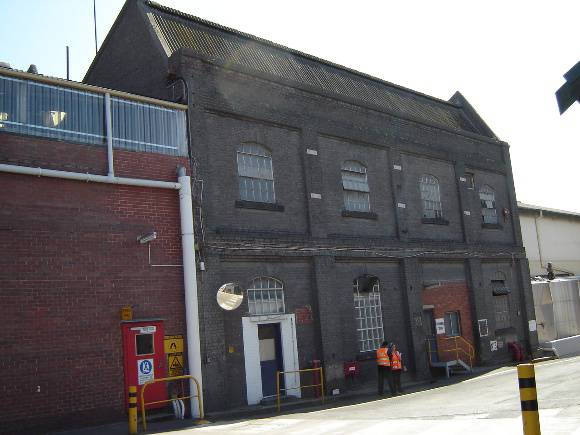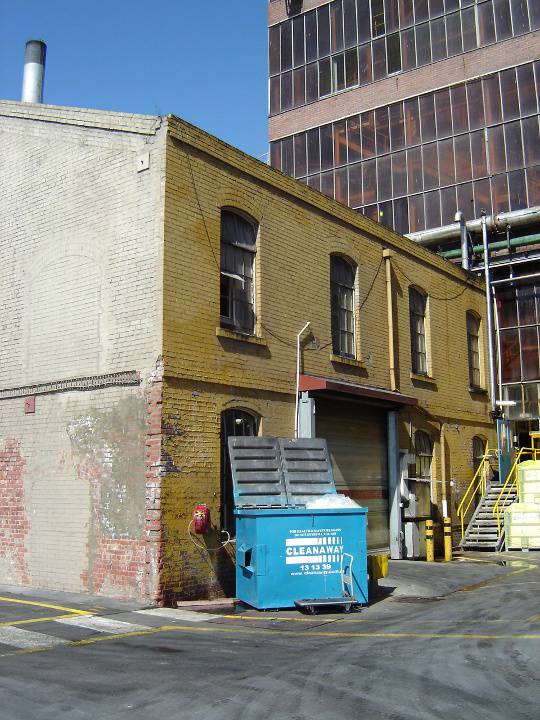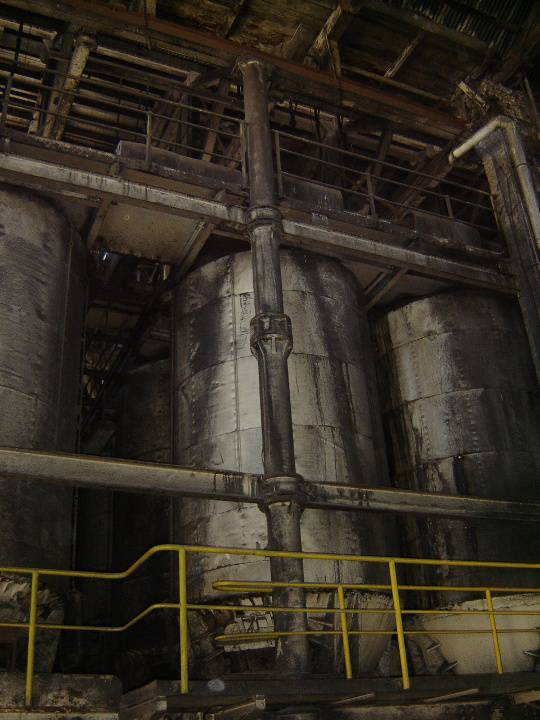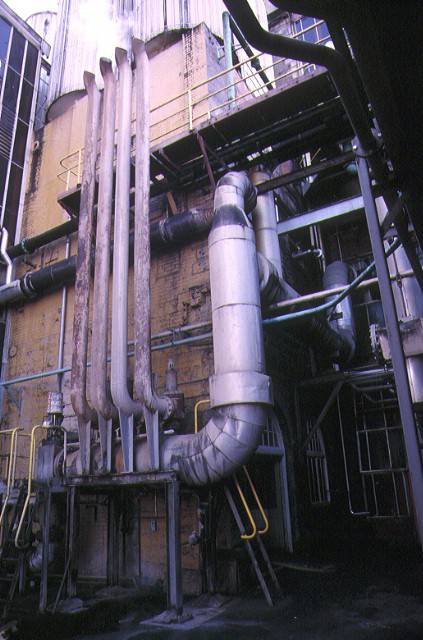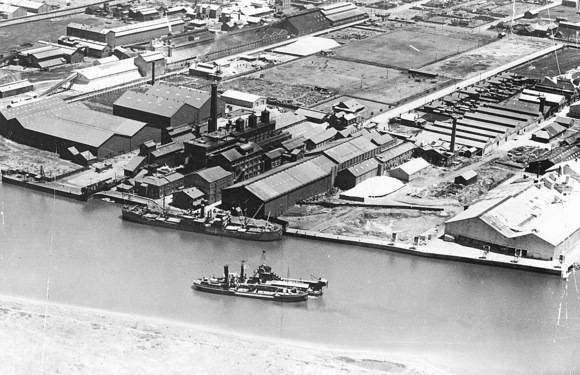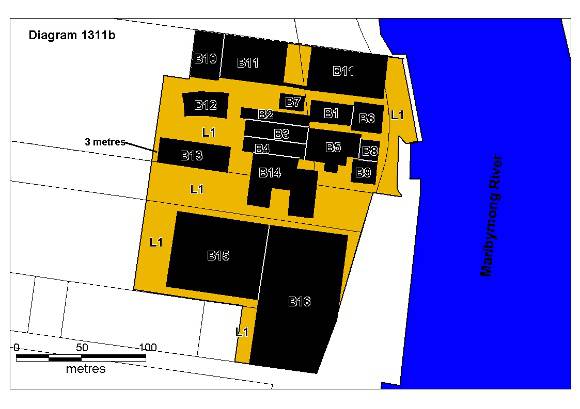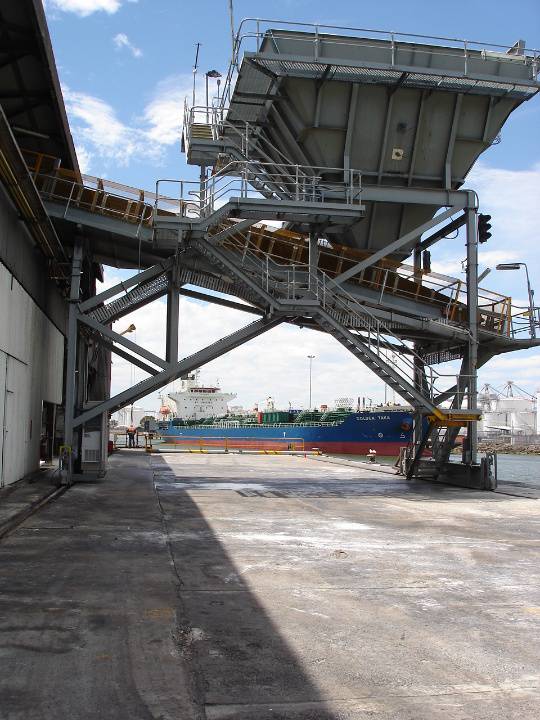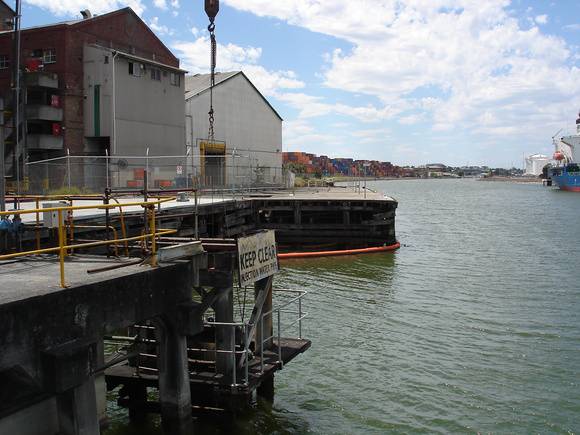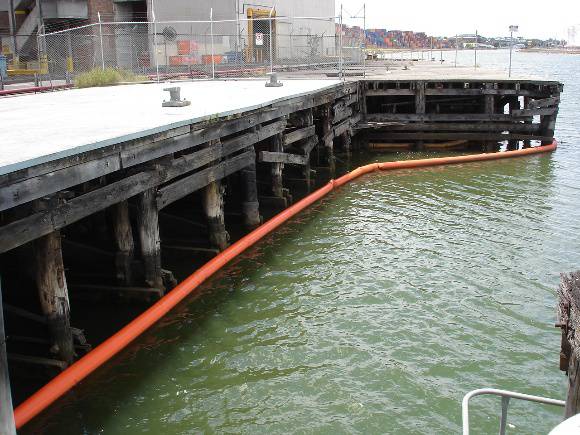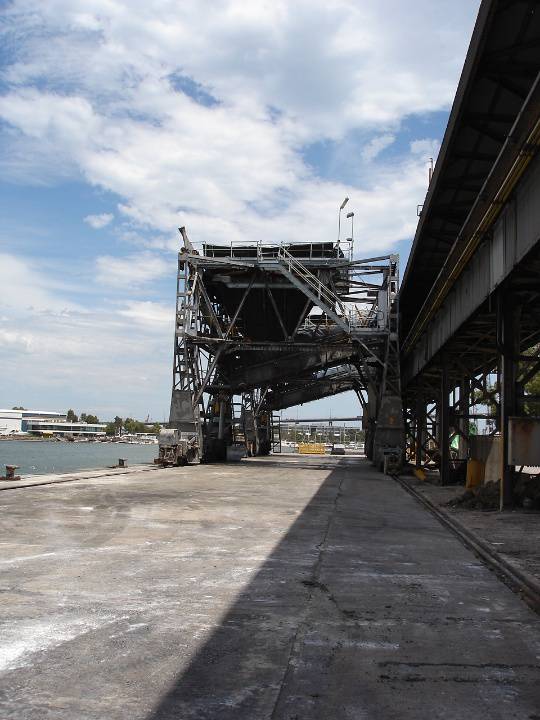| Back to search results » | Back to search page » |
|
CSR COMPLEX
Statement of Significance
What is significant?
The CSR Sugar Refinery Complex is comprised of buildings dating
from three main periods: the 1870s, 1900s and 1910s. The buildings on
the site are predominantly brick, timber or metal framed structures;
the pan house is the only structure which utilises stone. The
structures are generally roofed using metal or timber framed trusses
clad in galvanised sheeting. The former Packing Station, (now drier
station) is a five storey building and was constructed c.1913. The
structures of the Cistern House and Char Ends exhibit a complete range
of the technologies employed in iron and steel frame construction from
the 1870s to the 1930s. These buildings were first constructed in 1875
and house original cisterns and kilns. The Pan House comprises the
original refinery building constructed to Thomas Watt's design in
1872-73; it is the oldest building on site and exhibits technology
from the period. The Retail Packing Station was constructed c.1880 and
has a distinctive timber framed structural system. The former Melting
House was built in 1902 and has retained its cast iron refabricated
internal frame, although now enclosed in concrete. The Golden Syrup
and Treacle Packing Store dates from the 1880s and has cast iron
columns; this building houses a CSR designed golden syrup filling
machine. The former Power House contains machinery which demonstrates
the power generating process.
The original refinery building was constructed by the Joshua
Brothers Company in 1873 and it was built in direct competition with
the Victoria Sugar Company, a sub-company of the Colonial Sugar
Refining Company. In 1875, the original Victorian Sugar Company
Refinery (built c. 1857) burnt down and the company took over the
Joshua Bros. and the Yarraville site. Nationally, CSR had a refining
monopoly which continued well into the 20th century.
How is it significant?
The CSR Sugar Refinery Complex is of historical, scientific
(technical) and architectural importance to the State of Victoria.
Why is it significant?
The CSR Sugar Refinery Complex is historically significant for the
strength of its association with the sugar refining industry and in
particular, the Colonial Sugar Refining Company which was instrumental
in the development of cane growing and sugar refining in Australia.
The CSR Sugar Refinery buildings are historically important for
their on-going relationship with major sugar refining companies in Victoria.
The CSR Sugar Refinery Complex is historically significant as an
early large scale industrial complex in Victoria which still retains
its original function.
The CSR Sugar Refinery Complex is of architectural significance as
a representative example of a nineteenth century industrial complex
and as a rare example of a nineteenth century sugar refining plant.
The CSR Sugar Refinery Complex is of architectural significance
for its remarkable integrity. Other important architectural features
are the cast iron and masonry elements and the enormous timber trusses
and its unique prefabricated structural systems.
The CSR Sugar Refinery Complex is of architectural significance
for its association with the architect, Thomas Watts, who designed the
first buildings on the site in 1872 and who was also responsible for a
number of important industrial and commercial buildings in Victoria.
The CSR Sugar Refinery Complex is of scientific (technical)
significance for its retention of early operating systems and
machinery particularly those found in the Cistern House, the Char Ends
and the Pan House.
As a sugar refining complex CSR Yarraville is both rare and
significant at a national level.
Group
Manufacturing and Processing
Category
Factory/ Plant






